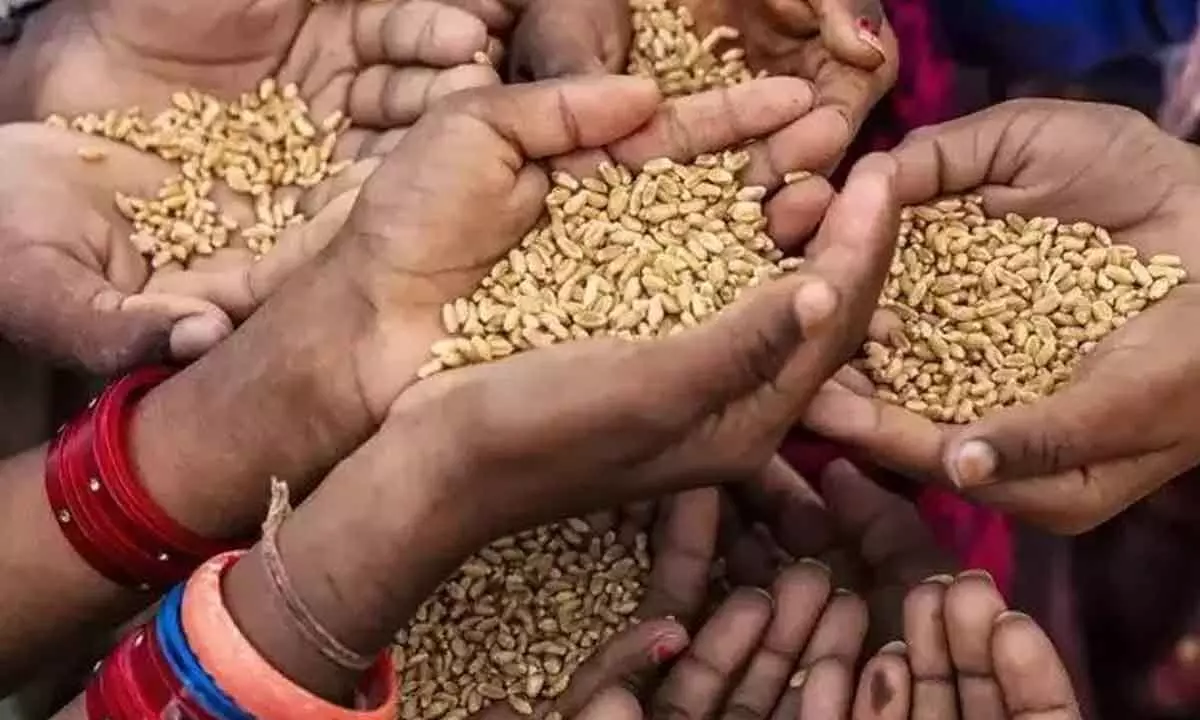Centre needs to amend NFSA for free foodgrains
Pradhan Mantri Garib Kalyan Anna Yojana (PMGKAY) introduced during the first wave of Covid-19 in April 2020, to help the needy, lapsing on December 31; Govt intends to carry out providing free foodgrains to 81.35 crore people in 2023 calendar year too; However, the amendment doesn’t require Parliamentary nod as it can be done by issuing a notification
image for illustrative purpose

New Delhi: The central government will have to amend Schedule-I of the National Food Security Act (NFSA)- 2013, to carry out the move to provide free foodgrains to 81.35 crore people for the calendar year 2023. The amendment, however, doesn't require Parliamentary nod, as it can be done by issuing a notification, official sources told Bizz Buzz.
It may be recalled that the Pradhan Mantri Garib Kalyan Anna Yojana (PMGKAY) was introduced during the first wave of Covid-19 (April 2020) to help the needy. Aimed at distributing free foodgrains to the poor, the scheme is lapsing on December 31.
Last week, the government decided to provide free foodgrains. Giving free foodgrains to the poor will cost the exchequer Rs2 lakh crore. As per the NFSA, priority households category get foodgrains at 5 kg per person per month. Antodaya Anna Yojna (AAY) families are given 35 kg per family per month at the subsidised rates of Re1, Rs2, and Rs3 per kg for coarse cereals, wheat and rice, respectively.
This is in accordance with Schedule-I of the NFSA, which states, "eligible households shall be entitled to foodgrains under Section-3 at the subsidized price not exceeding Rs3 per kg for rice, Rs2 per kg for wheat, and Re1 per kg for coarse grains for a period of three years from the date of commence of this Act; and thereafter at such prices as may be fixed by the Central government, from time to time, not exceeding (i) the minimum support price for wheat and coarse grains and (ii) the derived minimum support price for rice, as the case may be."
Owing to the political considerations, no government deemed it appropriate to increase the price of foodgrains in the last nine years, despite the fact that the overall costs have gone up. Let alone adjusting the subsidized prices for inflation, there hasn't been even a token increase.
The government was garnering around Rs14,000 crore from the sale of subsidized foodgrains under the NFSA. Therefore, the actual burden on the exchequer would be Rs14,000 crore.

